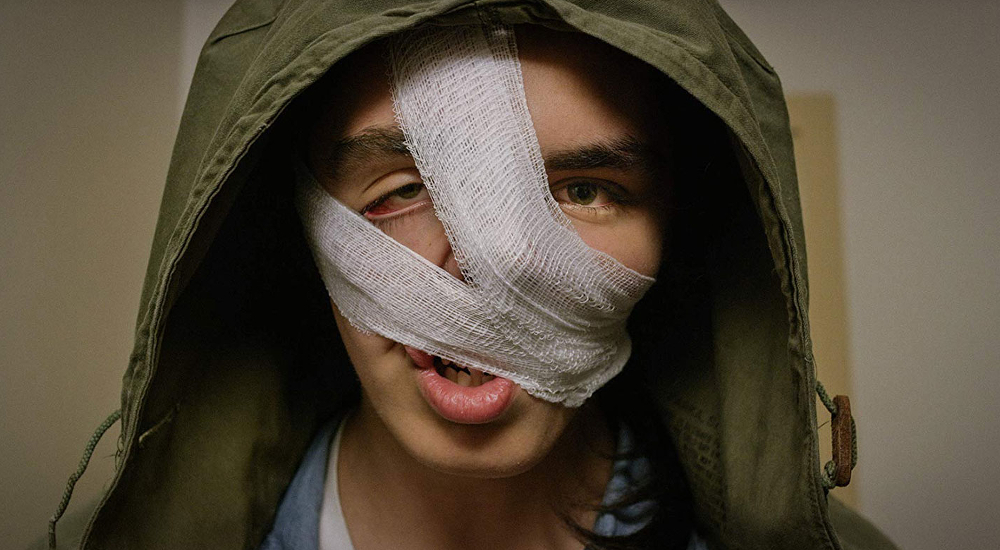"No man is more than another unless he does more than another."
Struggling to cope with the changes in his cancer-stricken mother, Stan, an impractical, self-absorbed 19-year-old, manipulates his physical traits to join a therapy workshop for disfigured patients. An inarguably unusual attempt to reconnect, Stan's effort sets off a chain of events that examine society's nasty obsession with beauty.
Directed by Alexandre Franchi, Happy Face features an intimate cast of characters who bear physical qualities that counter culture's perceived grace and allure. A bold character study that refuses to conform, apologize, or sacrifice itself, the film pleads for a better understanding of self-value and acceptance.
Rabin L'Houmeau stars as Stan, an adolescent who finds himself amid an unexpected health crisis as he must care for his ailing mother as her body succumbs to the rigors of cancer. During an early flashback sequence, we get a glimpse of her right breast, marked with a deep scar, as she cries at losing her supposed attraction, the visual marker that makes her a woman. "Who would want this?" she stammers through tears in the bathroom mirror while Stan watches on helplessly.
During these moments, Franchi showcases his ability to navigate the rough emotions surrounding such a sensitive terrain. Throughout the film, we listen to a handful of characters with their own set of issues: Lynch-White, the workshop leader, struggles with her weight while Allison Midstrokke's Maggie was born with TCS. But never are any of them or their physical deformities used as the butt of a joke. Instead, we venture deep into their psyche, utilizing the authenticity of their experiences to bring forth true human qualities, analyzing their fears and frustrations, finding a way to manipulate them into a position of power.
When Stan's identity becomes known, and the group learns of his actual appearance, he strikes a deal with them: he stays in the group, and in exchange, he shows them how to use their "ugliness" as a weapon and feel good about themselves.
At this point, the film sheds some characters and centers on a handful of dire personalities. But Stan isn't all well. His persona is the most interesting. Though his outside appearance is the most put together, his insides are laden with frustration and anger. As his mother's health continues to deteriorate, his silent screams for help are the most painful. Though he is working hard to bring happiness to those around him, you can't ignore the pain behind his eyes as he displays a sense of loss and abandonment, unsure of what to do.
As the group begins to take hold of Stan's perspective (in no small part thanks to a little Dungeons & Dragons), we watch as the group's leader refuses to deal with her issues. But as in life, it is oftentimes better to advise than self-analyze. The final moments of the film are hard to watch; however, Franchi has a way of putting everyone's best foot forward, even if it is with a bit of hesitation.

